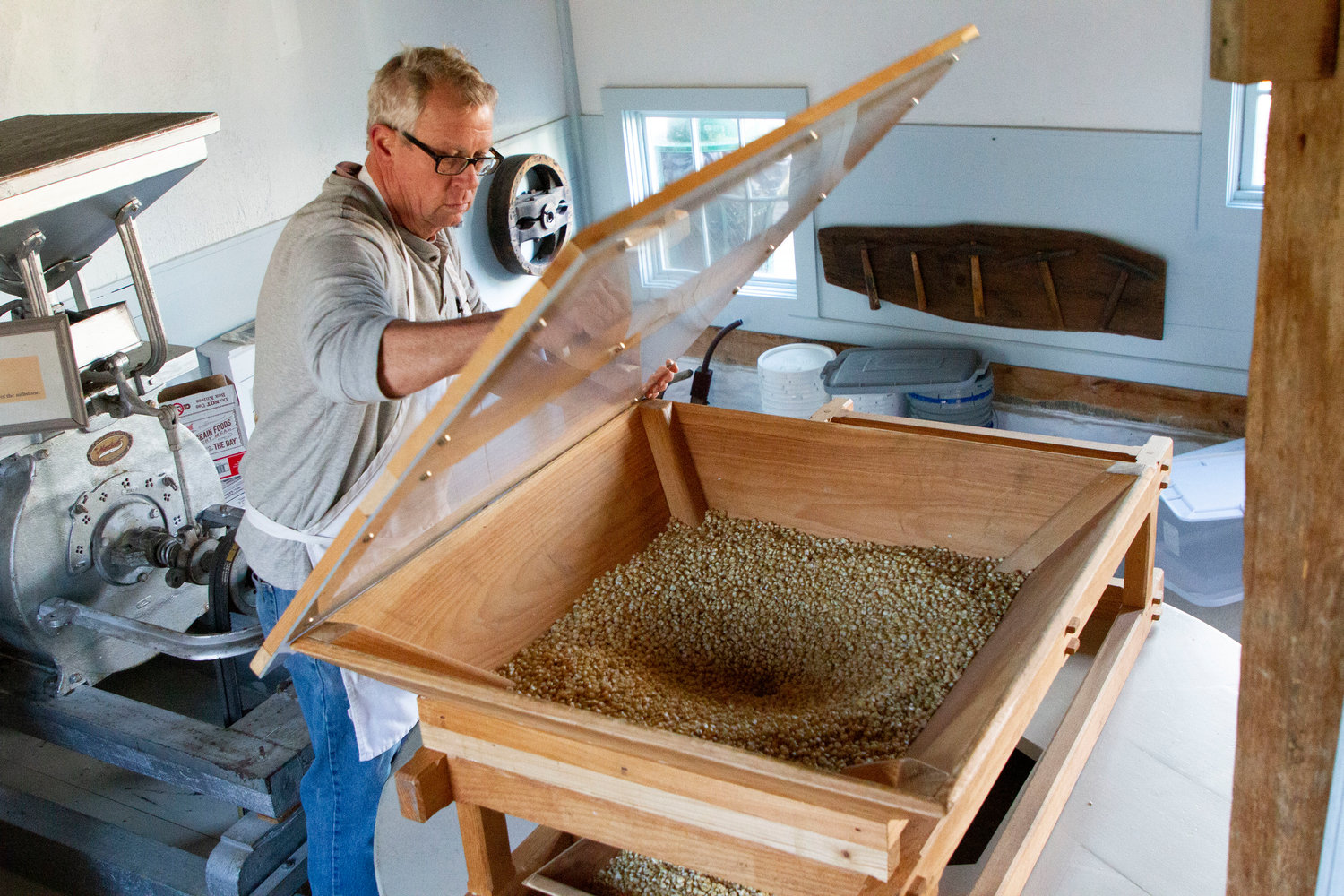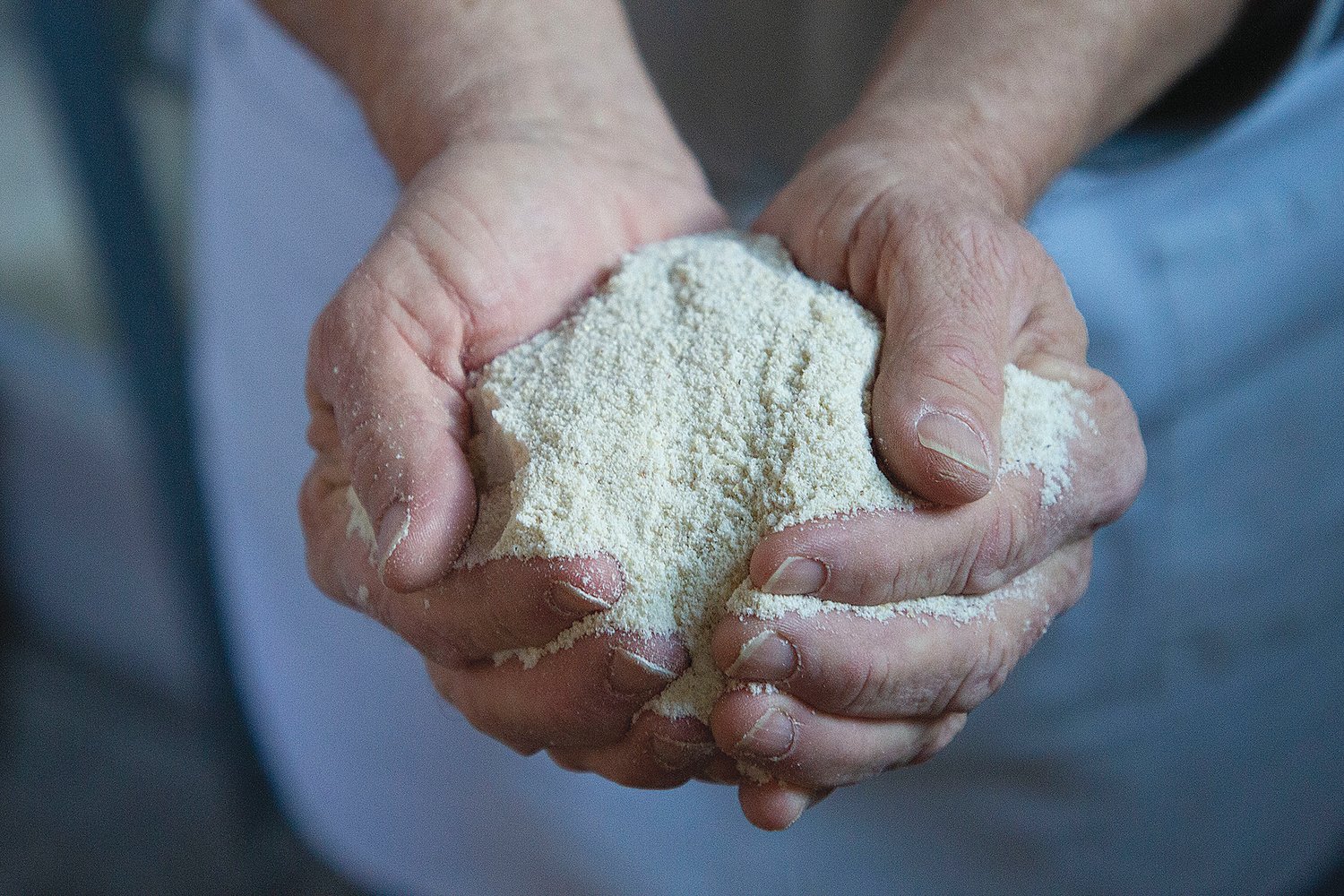With Gray's gone, jonnycake meal is becoming scarce
Former miller said it can still be found — "The corn is the most important thing"
This story is not about the correct way to make jonnycakes — everyone east of Narragansett Bay knows they're best thin, not thick.
It's not about whether jonnycakes made from anything …
This item is available in full to subscribers.
Please log in to continue |
Register to post eventsIf you'd like to post an event to our calendar, you can create a free account by clicking here. Note that free accounts do not have access to our subscriber-only content. |
Day pass subscribers
Are you a day pass subscriber who needs to log in? Click here to continue.
With Gray's gone, jonnycake meal is becoming scarce
Former miller said it can still be found — "The corn is the most important thing"
This story is not about the correct way to make jonnycakes — everyone east of Narragansett Bay knows they're best thin, not thick.
It's not about whether jonnycakes made from anything other than traditional white cap flint corn can even be called as such — laws once on the books in Rhode Island state that if you don't use white cap grown in the Ocean State, but call it a jonnycake, you're breaking the law and need to add an 'H' (Johnnycake) to denote the difference.
It's not even about how good they are: As miller George Whitley said of some traditional New England fare, "you can make anything taste good if you throw enough syrup on it."
This story is about the fate of jonnycake meal here, following the closure of Gray's Grist Mill in Westport a little over two months ago.
Gray's
The sale and closure of Gray's, a fixture on the Westport/Adamsville line since the 1600s, marked the end of a very long era. Until it sold to a Fairhaven couple who are keeping the coffeeshop open but closed the mill, Gray's had ground corn meal for more than 300 years, earning it the distinction of being one of the oldest continually operating gristmills in New England and among the last to grind and market the white cap strain of corn favored by purists. Whitley, who was Gray's last miller and loved almost every minute of it, is out, and as far as he knows there are no plans to re-establish the milling operation. The new owners did not return telephone calls seeking comment.
In the Little Compton and Westport areas, where jonnycakes are serious business, the recent closure led to a run on Gray's meal wherever it could be found. Formerly sold at Lee's and Beautiful Things in Westport, Wilbur's General Store in Little Compton, and as table fare at many area restaurants including The Barn in Little Compton, the meal is now off the shelves and jonnycakes made with Gray's are fading off menus.
"It's all gone," said Whitley, who sold off remaining stocks of meal over the first weeks of 2023. "I don't even have any. My wife has a few bags of pancake mix left but that will disappear too."
What of jonnycakes?
Among Rhode Island culinary institutions, jonnycakes are up there with Del's, quahogs and coffee syrup. There was even an organization dedicated to preserving its place in Ocean State history — the Society for the Propagation of the Jonnycake Tradition in Rhode Island — though it hasn't been active in some years.
According to Rhode Island tradition, real jonnycakes can only be made with white cap flint, a strain of corn that was here long before the settlers arrived. Infamously temperamental, difficult to grow and low-yielding, it was cultivated heavily by Native Americans and shared with the colonists not long before Gray's started milling in colonial times. From then right up through the 1940s, it was heavily cultivated here but fell out of favor by commercial farmers as easier to grow, higher yielding and more cost efficient varieties were developed. Still, small growers and the University of Rhode Island kept the "landrace," or original strain, alive, and the supply that Gray's long milled came from an Exeter farm that obtained its original seed stock from that URI food bank in the early 1980s. There are others, too, including an old-time farmer in Portsmouth who has maintained his family's stock of white flint as his ancestors did, dating back to the 1600s, on his small private plot.
Though Whitley is officially done with milling, he still feels close to the tradition and has since leaving Gray's has started a Facebook page, The Virtual Miller, to muse on the topic. He also keeps in contact with various Rhode Island growers and millers, including the farm he once bought one and others, including Kenyon's in South County.
Gray's old source is still growing and milling, he said, and those who want it can find out more about that operation, and where to find its products, on its Instagram page: @harry_here_farm.
Though he's out of the business, Whitley said he feels privileged to have been part of an important regional tradition.
"I want it to stay alive," he said. "I'll stay involved if people want to talk about it. I care about it — in the grand scheme of the world you need these traditions. The seed stock and the corn is very important out there in a world of genetically modified (GMO) corn, so these original strains have to stay alive."
"I'm optimistic. I realize that I got a little bit of history, but the corn is the most important thing. It's more important than the mill, and the third in importance is the miller. But I feel like I can say I made the best jonnycake meal on the planet."
Try Whitley's recipe
If you can find authentic white cap flint corn meal, try this recipe, though Whitely admits that if you have a bag of Gray's meal (spelled with an H on the bag), be careful — the recipe on the bag that uses water in place of milk never worked for him.
"I tried it and I can't make a decent jonnycake" with that recipe, he said.
Instead, Whitley starts with one part meal and one part whole milk. Stir in a bowl, add a pinch of salt, and then continue adding milk until it takes on the consistency of soupy, runny oatmeal. Though traditionalists use well-seasoned cast iron skillets, he prefers an electric griddle as he's never had great luck with cast iron.
"I'll pour it out and make one three inches across. Though it's called thin, it's still a little thick. Once I have a stack of them, I start out with one or two plain, just because I want to taste the corn."
On successive cakes, he'll add a bit of butter and finally, some maple syrup.
"Delicious!"









